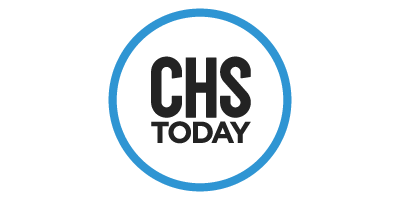Jen here. While no two days are ever quite the same at CHStoday, Katie and I do spend the majority of our workdays at our desks – writing the newsletter, running our social media pages, and communicating with y’all through our inbox. But this past Tuesday, we found ourselves out on a boat, in the middle of an aggressive rainstorm, to witness the process of farming local oysters firsthand. And. It. Was. Awesome.
[embed]https://www.instagram.com/p/B8ug2a7nEmI/[/embed]
Allow me to back up a little. We get asked all the time about local seafood – where to find it, who’s producing it, and how to support it. So, we teamed up with South Carolina Aquarium’s Good Catch – a program devoted to generating awareness + support for local fisheries - to pay a visit to one of their partners, Barrier Island Oyster Company.
After making the trek out to Rockville, we met up with Jared Hulteen, Barrier Island’s Director of Operations and chief scientist. He can pinpoint the exact moment his passion for local oysters was born: One day while working on shoreline restoration with the South Carolina Department of Natural Resources, he and a colleague grabbed a couple of oysters straight from the water, and shucked them using a (his description) rusty screwdriver.
The freshness of the oyster – and the process of being able to get it straight from the source – was somewhat of a spiritual awakening for him, giving him an entirely new appreciation for locally harvested oysters. Now, he’s made it his mission to give everyone a taste of that experience (maybe minus the rusty screwdriver part).
After doing some research, Jared eventually pinpointed an innovative new cage method being used to farm oysters in Canada. By farming them in cages, the oysters are able to stay continuously submerged – protecting them from the hotter temps that in the past prevented South Carolina oysters from being harvested year-round. Fast-forward through a lot of permitting and a bit of trial-and-error, and BIO was able to implement that method of growing on their farm. Plus: all of their oysters are grown from hatchery-spawned seeds – so they’re not disturbing the oysters that are naturally grown on our shorelines. That’s a good thing, because those oysters play an important role in our ecosystem.
The three of us, together with Josh Eboch (another member of the BIO team), the Aquarium’s Stephanie King and Amy MacKown, and Chef Shaun Brian (formerly Parcel 32) traveled up Ocella Creek to see where they keep their oyster beds, and taste the freshly harvested Sea Cloud oysters. Jared didn’t let us down – they tasted incredible (smooth, clean, and deliciously salty – like, if the perfect day on one of our beaches had a taste, this would be it), and our experience was nothing short of what he described experiencing himself at the start of his journey.
Want a taste of Barrier Island’s Sea Clouds for yourself? Find them on the menu at any of these restaurants around Charleston + several other cities. Or, better yet, grab tickets for tonight’s Good Catch Oysterfest at the Aquarium. Tickets are $50 and include oysters, small plates, wine, beer, + entertainment. Plus: Katie and I will be helping judge a Shuck-Off right before the event kicks off.













